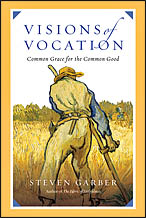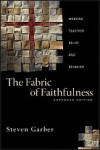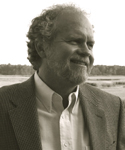https://youtu.be/x4TT5p-v6i4 In celebration of Labor Day and in preparation for Scholar's Call, please take a few minutes to join me in considering how you define/embrace vocation and what resources you've found of particular value (please keep sending suggestions and filling out the writer survey). For inspiration, Steve Garber offers in Visions of Vocation: Common Grace for the Common Good (InterVarsity Press, 2014): … [Read more...] about Visions of Vocation on Labor Day
Steve Garber
Best Books on Calling and Vocation?
I recently wrote about themes of calling and vocation in Chaim Potok's My Name Is Asher Lev. This got me to thinking: What are the best books on calling and vocation? Here are a few that occur to me. What books would you add to the list? These below are all Christian nonfiction books, but novels, secular guides, poetry, anything, is welcome as suggestions. Os Guinness, The Call: Finding and Fulfilling the Central Purpose of Your Life One of the classics on calling and vocation, this book is made up of … [Read more...] about Best Books on Calling and Vocation?
What is the point of learning? – Steve Garber’s Journey (Part II)
Part II of Byron Borger's evening chat with Steve Garber, author of Fabric of Faithfulness: Weaving Together Belief and Behavior (InterVarsity Press. Revised Edition, 2007) -- click here for Part I. Let's pick up with Steve's priceless realization of the importance not only of asking Who am I? but also of finding a place and a mentor with whom to ask an honest question and get an honest answer. * While at L'Abri and wrestling with the question "Who I am?", Steve watched his first film with Donald Drew. Donald, … [Read more...] about What is the point of learning? – Steve Garber’s Journey (Part II)
What is the point of learning? – Steve Garber’s Journey (Part I)
Last week I had the opportunity to hear "the one and only" Byron Borger (owner of Hearts & Minds Bookstore) spend a night informally chatting with his good friend Steve Garber, director of the Washington Institute and author of Fabric of Faithfulness: Weaving Together Belief and Behavior (IVP. 2007). What did Byron and Steve explore on a Friday night over coffee with a 100+ friends from South Central PA?* Steve started by sharing his story of growing up in the large agricultural valley of San Joaquin, … [Read more...] about What is the point of learning? – Steve Garber’s Journey (Part I)
Colleges ignore life’s biggest questions
Last fall Anthony Kronman, Sterling Professor of Law at Yale, kicked off the academic year with a Boston Globe op-ed entitled Why are we here? Colleges ignore life's biggest questions, and we all pay the price. In response, Comment hosted an excellent on-line mini-symposium with several scholars including Steven Garber (Director, Washington Institute for Faith, Vocation and Culture), Dr. James K. A. Smith (Associate Professor of Philosophy, Calvin College), and Greg Veltman (Ph.D. Student, University of … [Read more...] about Colleges ignore life’s biggest questions




